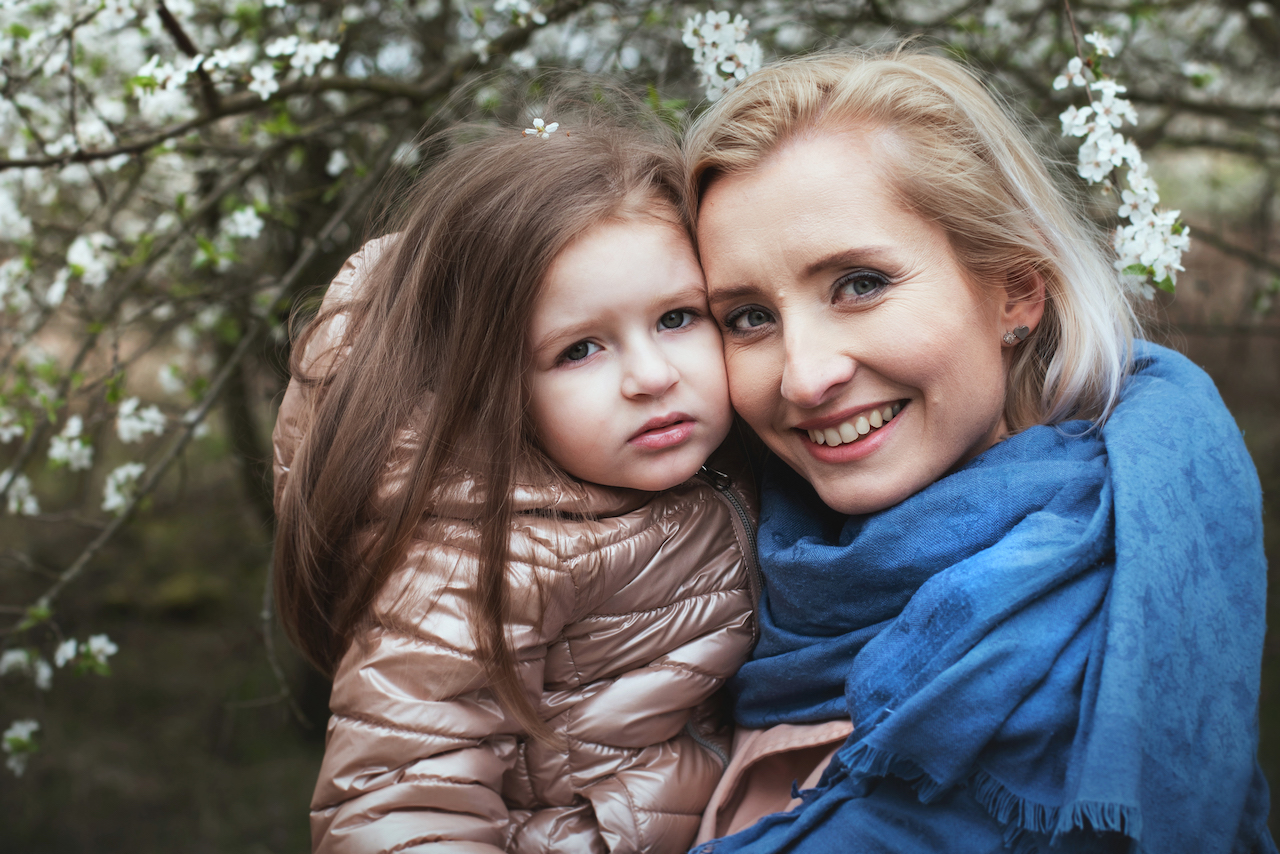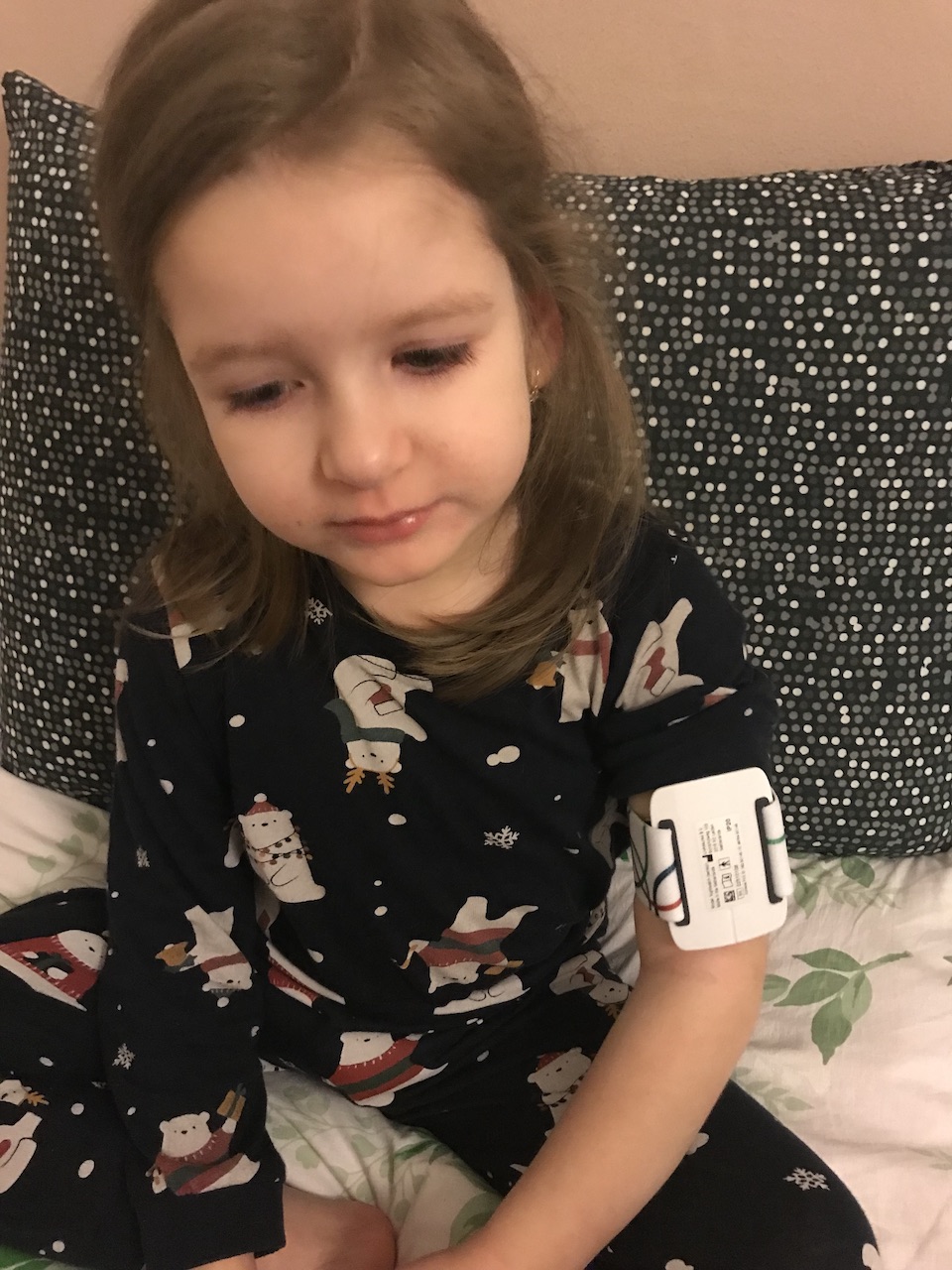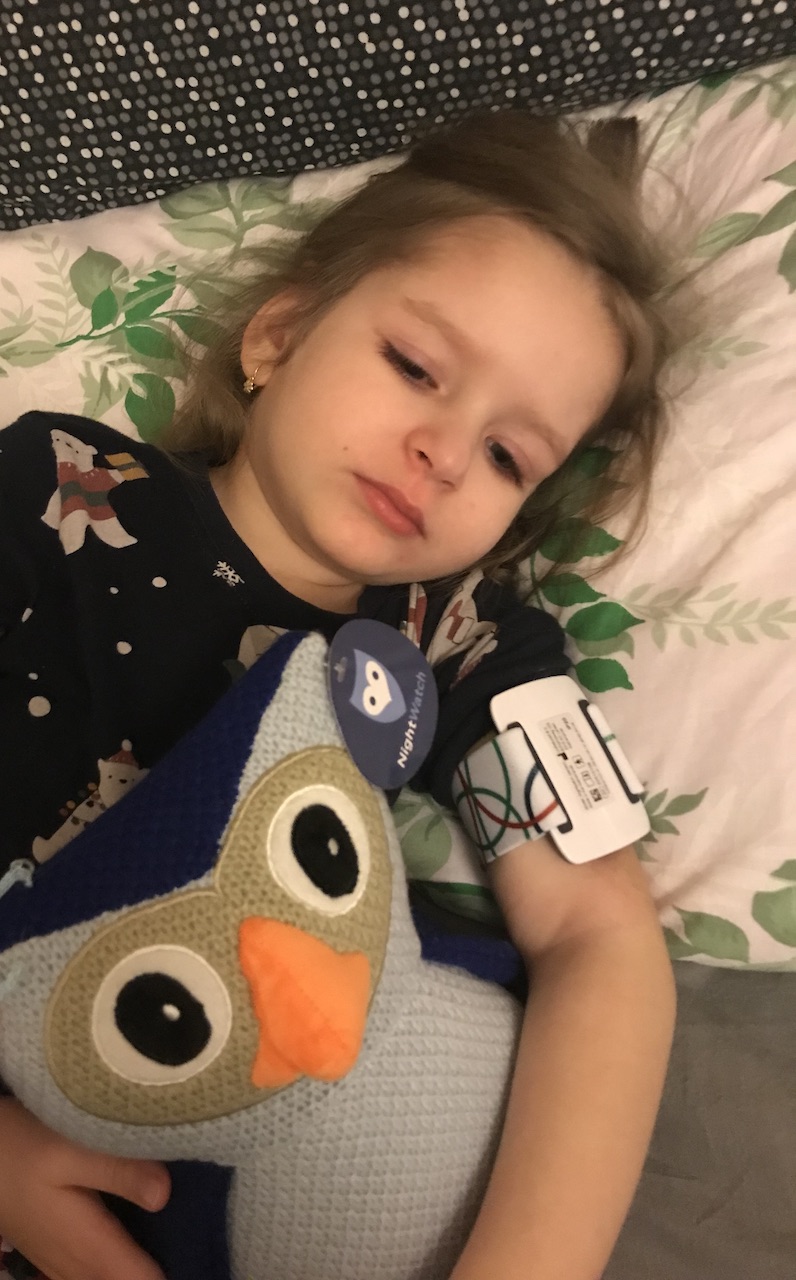My name is Lucie; I am the mother of an almost 5-year-old daughter, Elen, who suffers from Dravet syndrome. We live with our family in Prague, Czech Republic.

When Elen came into the world, she was at first sight a healthy baby. However, in her fifth month, she suffered a prolonged epileptic seizure that lasted more than 40 minutes. After several more seizures and hospitalisations, genetic tests revealed that she suffered from a rare and severe form of gene epilepsy - Dravet syndrome, also called Severe Myoclonic Epilepsy of Infancy (SMEI). Although the disease is genetic, she did not inherit it from either parent; it was just a "gene fault" early in pregnancy. Dravet syndrome is also associated with many other associated diagnoses, such as delayed psychomotor development, hypotonia, attention deficit disorder, unsteady walking, etc. Although Elen looks like a healthy four-year-old girl, she has many limitations in her life. For instance, she has to follow a strict and regular regime, be under constant supervision, stay with the children in the playground, not have too much fun, and not go outside in summer when it is hot outside. All this can lead to a seizure with unconsciousness, which can further delay her development.
Unfortunately, despite all precautions and four different anti-epileptic drugs, Elen has a more significant seizure every week. She can also have seizures during sleep, so we are happy to use NightWatch now.
All these conditions affect our whole family, who must adapt their lives to Elen's needs. Elen cannot attend kindergarten because she tires easily and often sleeps during the day. Despite all the complications, Elen is a very smart and bright four-year-old girl who energises the whole family with her tremendous strength. As her parents, we are happy she has shown us a new path.


At the same time, I run the non-profit organisation Epicana: https://www.facebook.com/epicanacz. Together with my husband and other parents of sick children, we founded the non-profit patient organisation Epicana with the aim of helping children with epilepsy, in particular Dravet syndrome, and their families in the Czech Republic. For example, we organise a special summer camp for families with sick children.
The non-profit organisation EPICANA z.ú. aims to help children and adults with a neurological disease such as epilepsy and to organise cultural and educational events in support of people with epilepsy, especially with Dravet syndrome. EPICANA has plans to organise epilepsy and other similar meetings of whole families, charity and cultural events, but also focuses on targeted financial assistance to families through the purchase of necessary compensatory aids and rehabilitation, emergency services, medical interventions not covered by insurance companies, etc.
The establishment of the non-profit organisation Epicana came about due to the illness of our daughter Elen.
Lucie Miczova